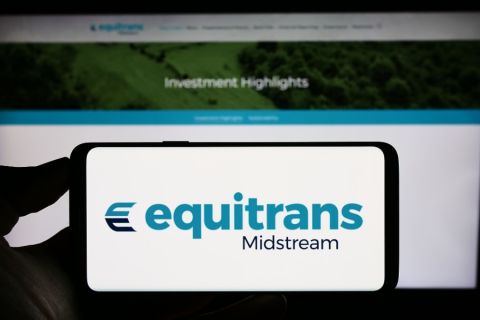Master limited partnerships (MLPs) outperformed equity and credit benchmarks in April, with the Alerian Index eking out a gain of 1.68% while the S&P 500 fell 0.7%. MLPs involved in natural gas storage and coal led the group with near double-digit gains after having been the chief laggards of all the MLP subsectors for the past several months.
Propane MLPs, another recent underperforming sub-industry, also rebounded on support from Suburban Propane Partners LP's proposed acquisition of Inergy LP's retail propane business for $1.8 billion. In other deal news, Penn Virginia Resource Partners LP's announced acquisition of Chief Gathering LLC's midstream assets for $1 billion was the latest example of consolidation focused around the Marcellus shale.
The ETP-SUN deal
April was replete with MLP transactions, the largest of which was Energy Transfer Partners LP's (ETP) agreement to purchase Sunoco Inc. (SUN) for $5 billion, in a cash and units transaction valued at $50.13 per share, reflecting a 29% premium to SUN's 20-day average price. SUN is a c-corporation in the process of exiting the refining business to focus on retail and logistics via its 4,900 branded retail gasoline-convenience stores and an ownership stake in Sunoco Logistics Partners (SXL). The ETP-SUN merger comes on the heels of last year's Energy Transfer Equity purchase of Southern Union Co. and Kinder Morgan Inc.'s planned purchase of El Paso Corp, reflecting a trend of large MLPs acquiring c-corporations.
The deal is expected to close in September 2012 with limited regulatory risk. While the $225-million breakup fee provides some disincentive, oily midstream assets have strategic value to other midstream companies and have resulted in several competing sale processes in the past two years.
The prize
ETP's prize in the SUN acquisition is the latter's 32% interest in the limited partner units of Sunoco Logistics Partners LP (SXL), an MLP that operates midstream crude oil and refined products assets. ETP, an MLP engaged in mostly natural gas operations, wants to reduce reliance on the commodity amid declining profitability from depressed demand for pipeline capacity.
ETP's current yield of 7.2% is attractive relative to most other natural gas MLPs, but ETP last raised its distribution in second-quarter 2008 when Henry Hub gas prices averaged $11.32 per million Btu, which, in an industry prized for its dividend growth, does not compare favorably.
In this light, the strategic rationale of the deal makes sense—with the acquisition, ETP's balance sheet will be de-levered and its business mix will be more balanced between natural gas, natural gas liquids, crude oil and refined products.
New strategy
The fact that the deal was announced only one month after ETP's parent, Energy Transfer Equity LP, closed the acquisition of Southern Union, demonstrates just how aggressive ETP management is in pursuing the transformation of the partnership away from a singular focus on natural gas to a broader energy infrastructure model.
While both Moody's and Standard & Poor's affirmed their investment grade ratings on ETP after the deal, the frenetic deal pace and structural complexity of the deals has left some analysts wary about more transactions and unsure how to evaluate. Moody's will consider stabilizing the Baa3 rating outlook as "asset reconfigurations and financing requirements among the inter-related entities comprising the overall ETE family" are determined.
ETP might also use SXL to drop down some of its assets, at high multiples, to SXL's balance sheet given its lower cost of capital. The implications for SXL unit holders, in other words, are not as rosy as for those of ETP, as SXL's long-term growth prospects will be largely influenced by the needs of ETP.
Only about 35% of SUN's cash flow is derived from its interest in SXL. Roughly 65% comes from the retail gasoline-convenience store operations.
Exit refining
All processes are still in place for SUN to exit the refining business but the question remains about the retail gasoline segment. If retained, it seems to be a business that would not fit well in the MLP business model, given its higher degree of commodity exposure. During its first-quarter analyst call, ETP indicated that potential acquirers of the gas station operations have already reached out through reverse inquiries. The potential complications involved in selling SUN's retail gasoline stations and selling, closing or repurposing the refining assets enabled ETP to access SXL by acquiring the troubled parent at a discount.
It is highly likely that yet more MLPs will be formed as the limited partner structure is increasingly considered to be the optimal vehicle for midstream assets and as more oil and gas producers need to monetize assets to fund drilling activity and reduce debt levels. Additionally, the MLP backlog for initial public offerings remains very robust.
Recommended Reading
Range Resources Holds Production Steady in 1Q 2024
2024-04-24 - NGLs are providing a boost for Range Resources as the company waits for natural gas demand to rebound.
Hess Midstream Increases Class A Distribution
2024-04-24 - Hess Midstream has increased its quarterly distribution per Class A share by approximately 45% since the first quarter of 2021.
Baker Hughes Awarded Saudi Pipeline Technology Contract
2024-04-23 - Baker Hughes will supply centrifugal compressors for Saudi Arabia’s new pipeline system, which aims to increase gas distribution across the kingdom and reduce carbon emissions
PrairieSky Adds $6.4MM in Mannville Royalty Interests, Reduces Debt
2024-04-23 - PrairieSky Royalty said the acquisition was funded with excess earnings from the CA$83 million (US$60.75 million) generated from operations.
Equitrans Midstream Announces Quarterly Dividends
2024-04-23 - Equitrans' dividends will be paid on May 15 to all applicable ETRN shareholders of record at the close of business on May 7.





